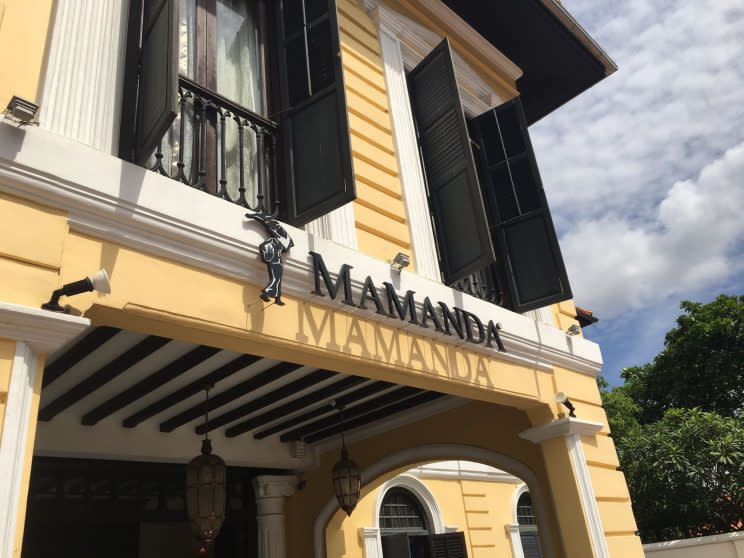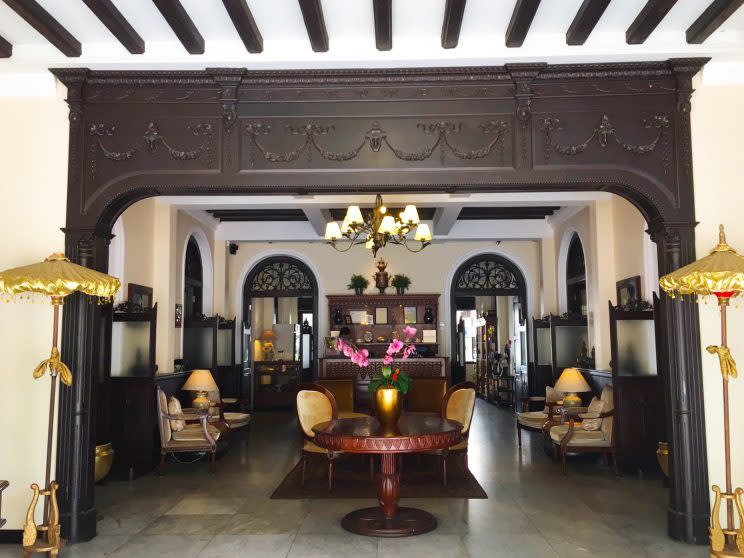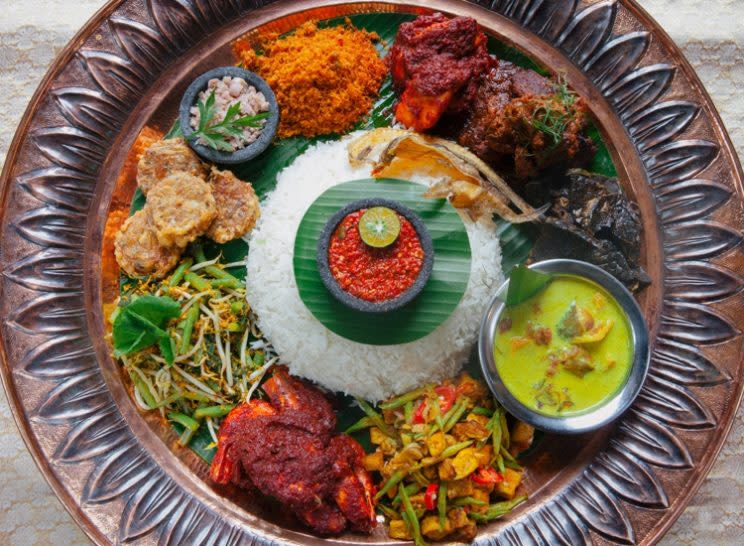Singapore restaurant Mamanda to bring Malay fine dining to Kuala Lumpur

One of Singapore’s more prominent restaurants for Malay fine dining will be launching a new outlet in Kuala Lumpur, Malaysia, in the first week of August.
Mamanda Restaurant, which has been known for its signature dishes such as Nasi Ambeng, as well as its lavish decor of mainly copper embellishments and glittering fabrics, will be expanding to the Tournament Players Club, formerly known as the Kuala Lumpur Golf & Country Club (KLGCC).
During a recent interview with Yahoo Lifestyle Singapore, director Zulkarnine Hafiz, 48, said, “It has always been our expansion plan to go to KL. We cannot expand in Singapore as we believe that there should only be one Mamanda here.”
In that regard, Zulkarnine takes inspiration from iconic American eatery Hard Rock Cafe, which only opens in major cities such as Singapore and Kuala Lumpur. However, he added, “For Malaysia, we can also pitch for different major cities within the country, such as Putrajaya, Malacca and Penang.”

The KL restaurant will take up 5,500 square feet and accommodate 120 seats, with some of these seats placed within 10 private rooms for VIP guests. Zulkarnine describes the location, situated just minutes from the city, as “convenient” and “away from hustle and bustle”.
“When we did our market study in Malaysia, we found that there are not many Malay restaurants in the country. (While) there are many that sell Indian food, Nasi Kandar and Chinese food, for premium Malay cuisines, there are almost none,” said Zulkarnine, who has been the director of Mamanda restaurant since it opened at 73 Sultan Gate about 10 years ago.
“We also note that for many Malaysian dignitaries, when they want to entertain guests, they want to showcase Asian food or Malay food. (Due to the lack of options), they end up in hotels, which typically have a limited number of items for Malay cuisine,” said Zulkarnine.
The menu for Mamanda in Kuala Lumpur will be tweaked to cater to Malaysian customers. For example, signature dishes originating from Negeri Sembilan, Kelantan and Terengganu, such as Nasi Kerabu, Nasi Dagang and Daging Salai, will be added to the menu.

Some of Mamanda’s signature dishes include Nasi Ambeng, a popular Malay rice dish typically served with a variety of side dishes and gravy such as rendang, sambal goreng and serunding. The dish, which also has origins in Indonesia and Malaysia, is served on a large round tray to allow customers to dine in a group.
“It’s like a sampler [dish], so [customers] can try a little bit of these dishes. The dish has a significance in Malay culture such that it promotes a communal spirit. They say a family that eats together, stays together. So we want to bring this camaraderie between friendships and relationships back,” Zulkarnine said.
Besides being one of the leading brands in Singapore for premium Malay cuisine, Mamanda is also proud of promoting Malay heritage and culture to its customers, both local and foreign. “When we tendered for this space, the mandate was to promote Malay heritage. The word ‘Mamanda’ itself is actually the respectful call to the Prime Minister,” he said.
“People always associate Malay cuisine with street food. Many think Malay cuisine is so simple, just throw in the items and then that’s it. But what we believe is that in order for us to retain the original recipes, you need to go back to its roots.”
Follow Yahoo Lifestyle Singapore on Facebook.



